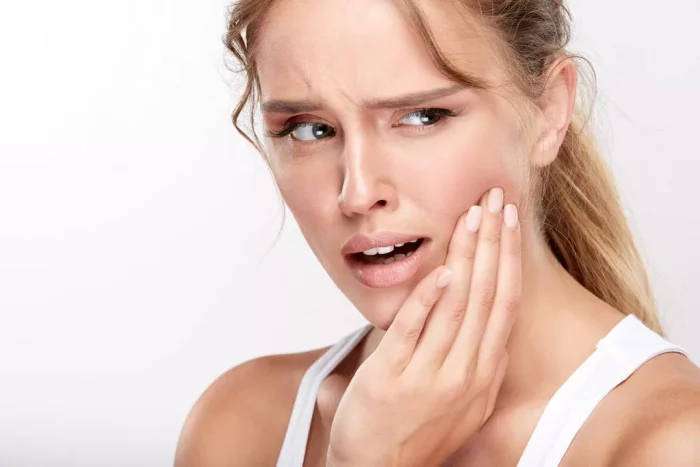Teeth sensitivity is a common side effect of teeth whitening, including both in-office and at-home treatments.I will analyze it for you from the perspective of my professional medicine.
Why Do My Teeth Get Sensitive After Whitening
Teeth sensitivity occurs when the enamel of the tooth is compromised, exposing the underlying dentin and nerve endings.This can be caused by a variety of factors, including brushing too hard, gum recession, and certain dental procedures such as teeth whitening.
When you undergo teeth whitening, the bleaching agent used in the process can penetrate the enamel and reach the dentin layer. This can cause temporary sensitivity to hot and cold temperatures, as well as discomfort during the whitening procedure itself.
It is important to note that teeth sensitivity after whitening is usually temporary and should subside within a few days.
However, there are some steps you can take to manage this discomfort:
1. Use a desensitizing toothpaste: There are many toothpastes on the market that are specifically designed to help manage teeth sensitivity. These toothpastes contain ingredients such as potassium nitrate or fluoride, which can help block the nerve endings in the teeth and reduce sensitivity.
2. Avoid hot and cold foods and drinks: During the first few days after whitening, it is best to avoid extremely hot or cold foods and drinks. Stick to room temperature or lukewarm items to minimize discomfort.
3. Take pain relievers: Over-the-counter pain relievers such as ibuprofen can help manage any discomfort associated with teeth sensitivity.
4. Use a soft-bristled toothbrush: Brushing too hard can exacerbate teeth sensitivity, so it is important to use a soft-bristled toothbrush and gentle brushing technique.
5. Avoid acidic foods and drinks: Acidic foods and drinks can further weaken the enamel of the teeth, making them more sensitive. It is best to avoid these items, or at least consume them in moderation.
Daily Routines And Exercise Help to De-sensitize Teeth
In addition to using desensitizing toothpaste and avoiding hot and cold foods and drinks, there are some lifestyle changes you can make to help reduce teeth sensitivity after whitening. Here are some tips to help you manage teeth sensitivity in your daily life:
1. Maintain good oral hygiene: Brush your teeth twice a day with a soft-bristled toothbrush and fluoride toothpaste. Floss daily to remove plaque and food particles from between your teeth. Good oral hygiene can help prevent gum recession and enamel erosion, which can contribute to teeth sensitivity.
2. Avoid acidic foods and drinks: Acidic foods and drinks, such as citrus fruits and soda, can erode the enamel of your teeth, making them more sensitive. Limit your consumption of these items, or at least rinse your mouth with water after consuming them.
3. Limit whitening treatments: Overuse of teeth whitening treatments can cause enamel erosion, which can lead to tooth sensitivity. Follow the instructions provided by your dentist or the manufacturer of your at-home whitening kit, and avoid using these products too frequently.
4. Drink plenty of water: Drinking water can help flush away food particles and bacteria from your mouth, reducing the risk of tooth decay and gum disease. It can also help dilute acidic or sugary substances in your mouth, reducing the risk of enamel erosion.
5. Eat a balanced diet: A balanced diet that is rich in calcium, vitamin D, and other nutrients can help keep your teeth healthy and strong. This can reduce the risk of enamel erosion and tooth sensitivity.
6. Exercise regularly: Regular exercise can help improve blood flow to your gums, reducing the risk of gum recession and tooth sensitivity. It can also help reduce stress, which can contribute to teeth grinding and jaw clenching, both of which can cause teeth sensitivity.
Conclusion
In conclusion, teeth sensitivity after whitening can be managed with a combination of dental products and lifestyle changes. By maintaining good oral hygiene, avoiding acidic foods and drinks, limiting whitening treatments, drinking plenty of water, eating a balanced diet, and exercising regularly, you can help reduce the risk of tooth sensitivity and enjoy a brighter, more youthful smile.
Related topics:

